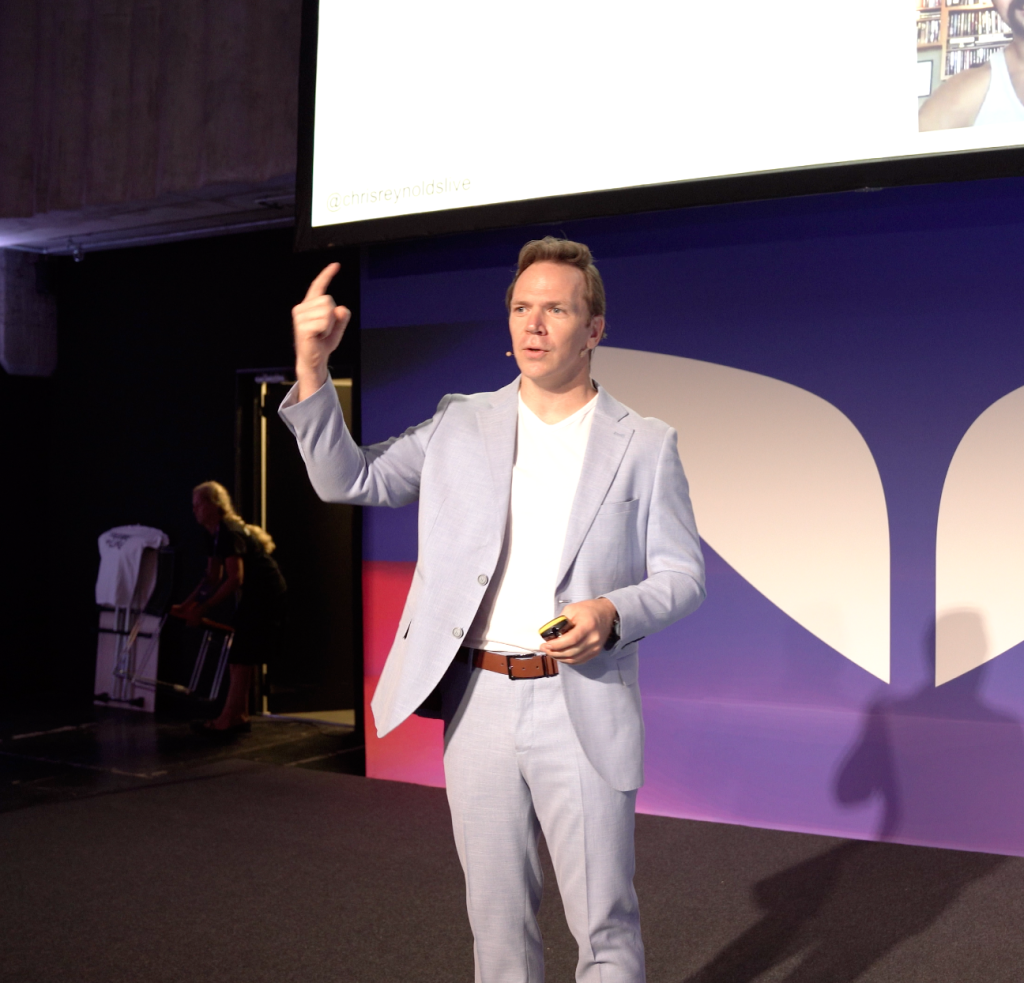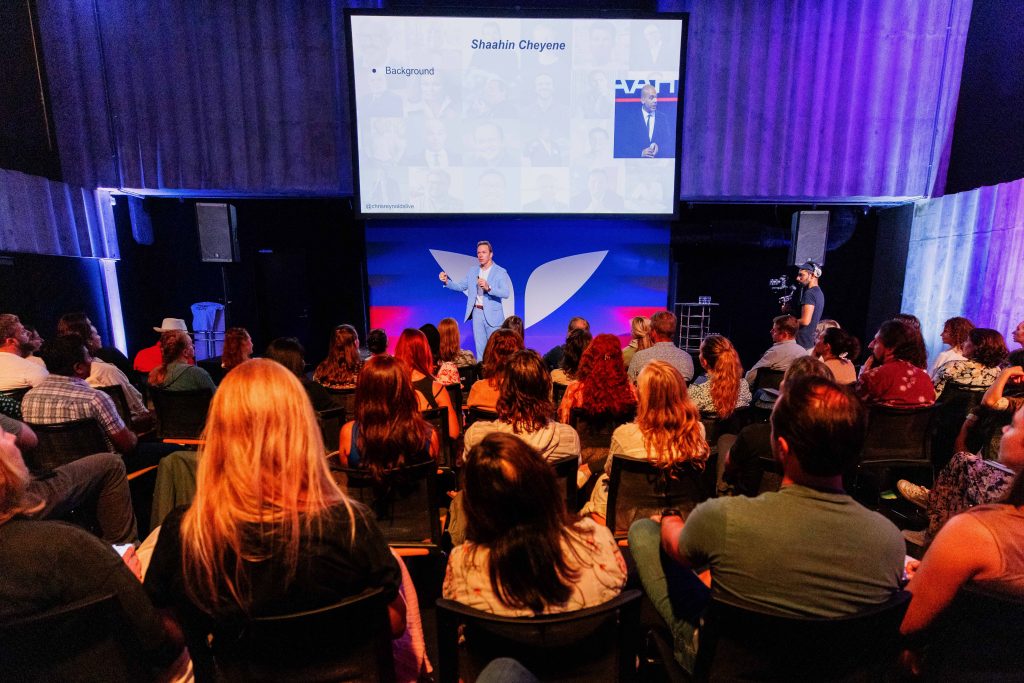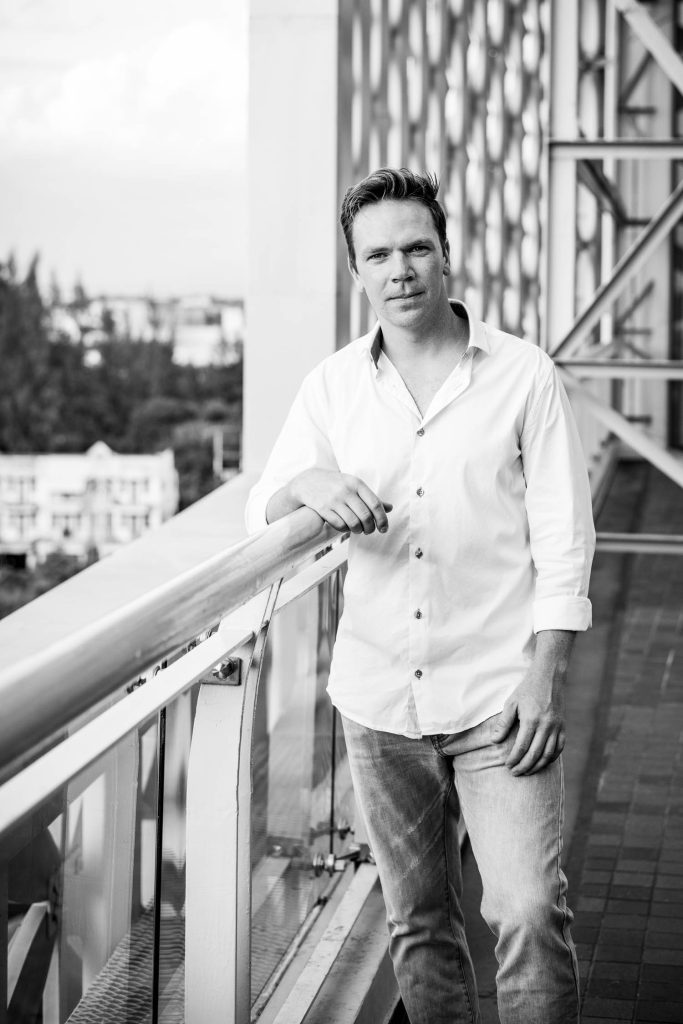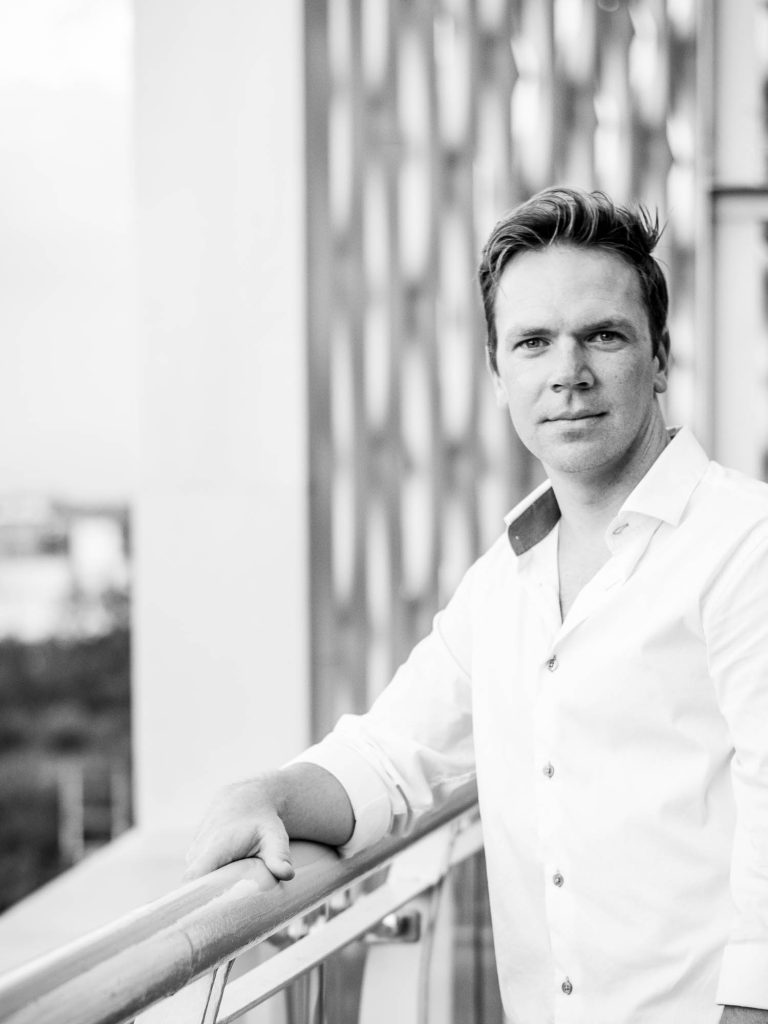Chris Reynolds is a seasoned entrepreneur with over 14 years of experience in building and scaling online businesses that empower fellow entrepreneurs. As the co-founder of M3 Founders Community, he has cultivated a peer network of top-tier business owners, driving innovation and growth within the entrepreneurial ecosystem. Over the past eight years, Chris has launched 10 international business accelerators, providing crucial support to startups and established companies alike. He is also the visionary behind The Business Method Podcast, which he founded in 2015 and has since grown to over 600 episodes, featuring interviews with billionaires and founders of billion-dollar companies. Currently based in Barcelona, Chris has embraced the life of a location-independent entrepreneur for more than 11 years, living in various countries and travelling the world while expanding his ventures. His commitment to fostering entrepreneurial success globally has made him a pivotal figure in the business community. Through his work, Chris continues to inspire and guide entrepreneurs to achieve their fullest potential. With a deep passion for entrepreneurship and a global perspective, Chris Reynolds is redefining what it means to build and scale successful businesses in the digital age.
With over 14 years of entrepreneurial experience, what key principles have guided you in successfully scaling multiple businesses?
Commitment and consistency. You don’t fail when a business fails; you fail when you give up. Period. As long as you don’t give up, you’re not going to fail. It may take longer due to the business or niche you’ve chosen, but if you stay consistent and keep plugging away, you’ll make a significant impact. Business is a compound interest game—the more you compound your learnings, experience, and skillset, the more valuable you’ll become, and the more you can apply this to the business world to achieve success. Most entrepreneurs who have hit seven figures or higher have put in a decade of effort, and that’s often what stops people from truly trying to start a business or stick with it. It typically takes 10 years or more to make a million dollars.
How did your journey as a location-independent entrepreneur begin, and what motivated you to maintain this lifestyle for over 11 years?
Simply put, I read The 4-Hour Workweek by Tim Ferriss, which is the bible for many location-independent entrepreneurs. It inspired me to live anywhere in the world while working, making money, and building a business online. This kind of freedom is unique to our generation—previous generations couldn’t work anywhere in the world like we do today. When I read the book, I knew this was going to be my life. I first read it in 2009, and I immersed myself in its ideas. I knew I was going to build something online, travel the world, and live abroad. For about nine years, this lifestyle was natural to me. I stayed in places where other location-independent entrepreneurs gathered, like Thailand, Rio de Janeiro, Barcelona, Lisbon, and Bulgaria. COVID put a pause on my travels, leading me to stay in Austin, Texas, for two years. For those nine years, it never felt difficult to maintain this lifestyle—it was just natural, and I felt deeply connected to the global community of like-minded entrepreneurs.
What inspired you to co-found the M3 Founders Community, and how has this peer network evolved since its inception?

M3 started as a mastermind group during COVID-19, which we initially called the Corona Crisis Mastermind. Seventy-two people signed up, and we supported them through the challenges of the pandemic. We saw the inside of businesses as they were failing, and how these entrepreneurs needed to shift. We witnessed the raw emotions of people struggling during that time. After running that mastermind, we decided to formalize it into a more structured community, which eventually evolved into what we now call M3. The community grew as people wanted to connect more regularly and meet face-to-face. Our first live event was something really unique—a kidnapping survival course used to train the FBI, CIA, Navy SEALs, and other high-profile individuals. This experience bonded our group, and we realized we had something special. Now, M3 hosts two events per year: one adventurous, like booking a desert camp in Morocco or renting out yachts in Cabo San Lucas, and the second event focused on learning from and meeting someone who has built a billion-dollar company. We also hold monthly dinners in Barcelona, where we connect seasoned entrepreneurs and they can bond over a dinner designed to deepen the attendee’s connections.
You’ve created 10 international business accelerators over the past eight years. What are the most critical factors for a business accelerator’s success, and how do you ensure these factors are met?
The success of a business accelerator depends on creating the right environment—both physical and emotional. It’s like putting bumpers on a bowling alley or setting parameters for a child; you need to create an environment where participants can get into the right headspace to achieve significant results in a short period. This includes choosing a location that energizes and inspires entrepreneurs. For instance, we often chose Thailand—a place known for adventure and escape. Entrepreneurs love the idea of an adventurous getaway where they can focus on their business while also enjoying the local culture, like visiting elephants, climbing mountains, or exploring Buddhist temples. Accountability is key—we had participants report their results daily, work in teams, and push each other to move the needle in their businesses. The final 48 hours of these events were always the most intense, with incredible results achieved due to the hive energy, motivation, and collective effort. These experiences were incredibly rewarding, and I thoroughly enjoyed running these accelerators.
The Business Method Podcast has over 600 episodes featuring interviews with billionaires and founders of billion-dollar companies. What has been the most surprising or impactful lesson you’ve learned from your guests?

That’s a tough question because, with so many interviews, there are countless golden nuggets. But if I had to sum it up, I’d say the most impactful lessons are: do something you love, give your business time to mature, and focus on one thing. First, if you build something you don’t love just for the money, you’re going to burn out or want to exit eventually. I always ask myself if I can see myself running a business for the next 10 years. If the answer is yes, then it is much more likely it is something I truly love. Second, it takes years to grow a business. Many entrepreneurs exit prematurely and don’t give their businesses the time they need to reach their full potential. Just like a child, there are many phases in the growth of a business, and each phase compounds the last. A business that is over 10 years old can often harvest so many more rewards than a younger business. Lastly, focus is crucial—every billion-dollar founder I’ve interviewed has blinders on, focusing on one business and one business only. While some entrepreneurs are truly serial entrepreneurs and thrive on juggling multiple ventures, those who focus on one business often see it scale much faster.
How has the landscape of online entrepreneurship changed since you first started, and what emerging trends do you believe will shape the future of this space?
The landscape has changed dramatically. When I started as an entrepreneur around 2007, we didn’t even have smartphones—we were using Blackberries. The release of smartphones has completely transformed the way we do business, work, live, and travel. With a smartphone, we can access our money, book flights, find directions, and handle all aspects of travel and business on the go. This has made location-independent work much easier. Post-COVID, remote work has become the norm, and more people are working from home or other remote locations. The trend towards freelancing and entrepreneurship will only continue as people seek more freedom and flexibility. The world is moving faster than ever, and while it’s exciting, it’s also a bit daunting. But I believe we’ll adapt and thrive in this new era. More and more people will become freelancers and entrepreneurs as they pursue the freedom to live and work wherever they choose.
What challenges have you encountered while managing businesses across different countries, and how did you navigate the complexities of a location-independent lifestyle?
Managing businesses across different countries comes with unexpected challenges, often related to cultural differences. For instance, in Brazil, it was incredibly difficult to get things done on time, which drove me nuts as an American. In Peru, I sometimes wouldn’t get a response to essential emails for seven to 10 days, which was frustrating. The first time I hosted an event in Brazil, I promised myself I’d never go back, but I was convinced to return twice after that. It was a struggle, but I had to learn to adapt and accept the cultural norms of the locals I was working with. When you learn to accept and understand these cultural norms doing business there becomes so much easier and enjoyable. Thailand was fantastic to host events because the people there are very respectful and business-oriented. You need to understand that things are done differently in different places, and if you can’t be flexible and tolerant, then international business might not be for you. But if you can adapt, you’ll learn a lot and grow from the experience.
As someone deeply involved in the entrepreneurial community, what common traits or habits have you noticed among the most successful entrepreneurs you’ve worked with or interviewed?

Successful entrepreneurs are committed, capable of taking big risks, and focused on the long haul. They are value-driven and have the resilience to handle the ups and downs of entrepreneurship. They also surround themselves with ethical, like-minded people who share their values. Managing and mitigating risk is essential, and so is the willingness to invest time and energy into a business for the long term. These traits, combined with a love for learning and growth, are what set successful entrepreneurs apart.
How do you balance the demands of hosting a podcast, running businesses, and maintaining a dynamic lifestyle across various countries?
For me, it’s all one thing—I call it my life. I love creating content and organizing events where entrepreneurs can connect, change their lives, and make lasting memories. I love running businesses, starting new ventures, and helping people grow their businesses. I also enjoy travelling to unique locations for business conferences, whether it’s in Estonia, Chiang Mai, or a remote part of Europe. Of course, balancing time and energy is crucial. I’m selective about the people I spend time with and very particular about my goals. Every quarter, I set four goals: mental (related to business), physical (health), emotional (relationships), and spiritual (purpose). This approach ensures that no area of my life is neglected and keeps me excited and challenged. It has kept my life in balance for a long time.
What advice would you give to entrepreneurs who aspire to build and scale their businesses while maintaining a location-independent lifestyle like yours?
Start yesterday, and if you didn’t, then start today. I recommend reading The Entrepreneurial Leap by Gino Wickman and The Star Principle by Richard Koch. These books will help you determine if you’re truly an entrepreneur and guide you in choosing the right business. Selecting the right business is crucial—it’s the difference between feeling like you’re pushing a boulder uphill versus having the wind at your back. Once you’ve decided that entrepreneurship is your path, think long-term. Ask yourself if you can see yourself working in this business 10 years from now and still be happy. If the answer is yes, then it’s worth pursuing.
For aspiring location-independent entrepreneurs, my advice is simple: book a ticket. Once you make that leap, the rest will fall into place. In today’s world, it’s easier than ever to fix mistakes or adjust plans. The likelihood that you will get stuck or stranded somewhere where you couldn’t get yourself out of is very small, so just go for it. When I started, I wasn’t making a ton of money, but I booked a one-way ticket to Costa Rica and figured the rest out along the way. It was the most life-changing decision I made, and something I’ll never regret. It set the stage for the incredible journey I’ve been on ever since. So, pick a destination—whether it’s Scandinavia, Africa, Southeast Asia, or anywhere else you’ve dreamed of—and just go. You’ll figure out everything else along the way!



